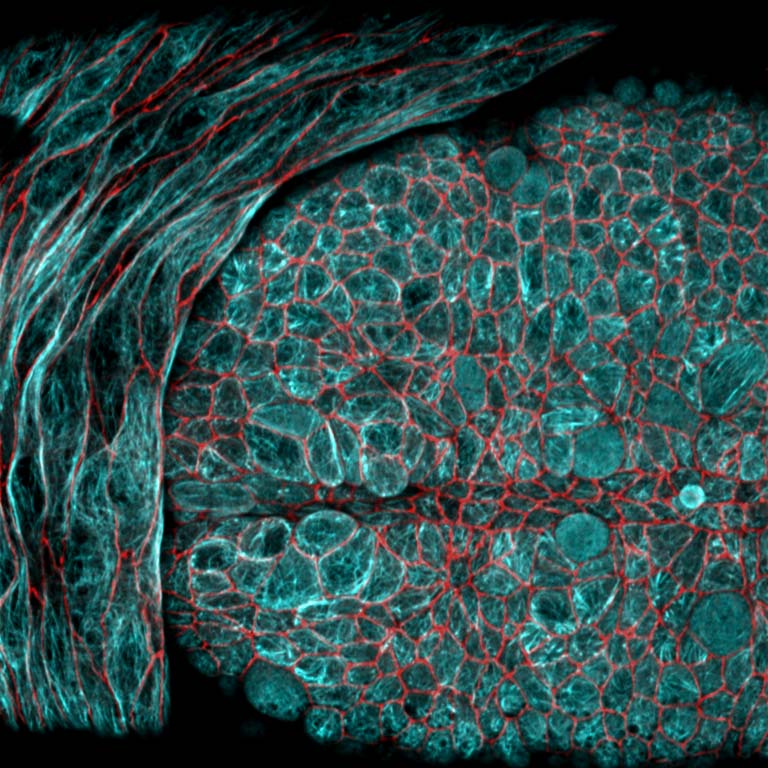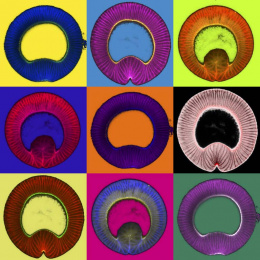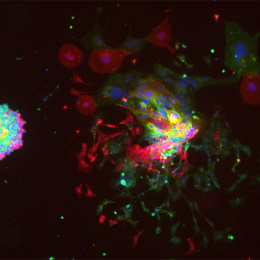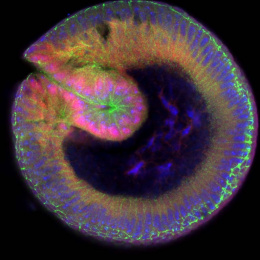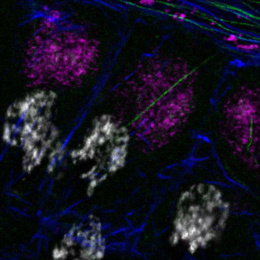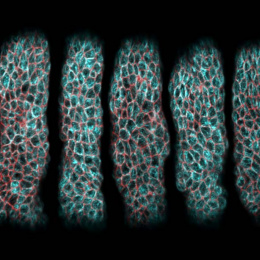Organization of Microtubules in Tissue Morphogenesis 2
Organization of Microtubules in Tissue Morphogenesis 2
Clint Ko
MIT Department of Biology
During the embryonic development of many multicellular organisms, cells grow, change shape, and divide. However, cells need to coordinate their behaviors in order to properly sculpt the embryo to produce the necessary body plan and form functional organs. Many of these cell behaviors that lead to the generation of more complex, three-dimensional tissue shape depends on the cell cytoskeleton. These images are of various tissues fixed at different developmental stages of the Drosophila melanogaster embryo, stained to show cell outlines (red) and the microtubule cytoskeleton (cyan). The assortment of cell shapes visible here, with distinct underlying organizations of microtubules, are snapshots of distinct cellular behaviors that evoke the sorts of dramatic tissue movements that lead to the formation of the larva. This image shows a beautiful divergence in cell packing geometries.
